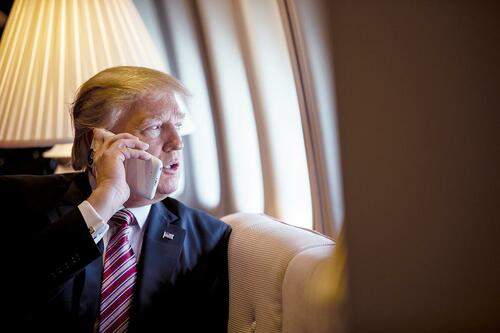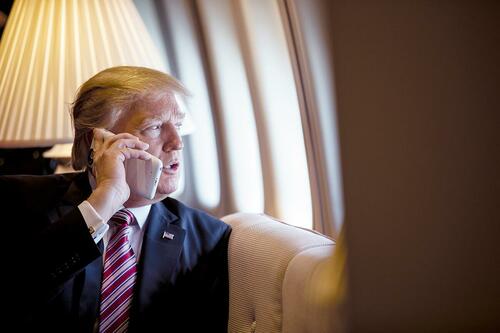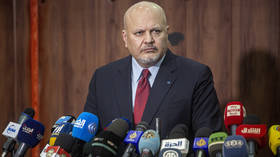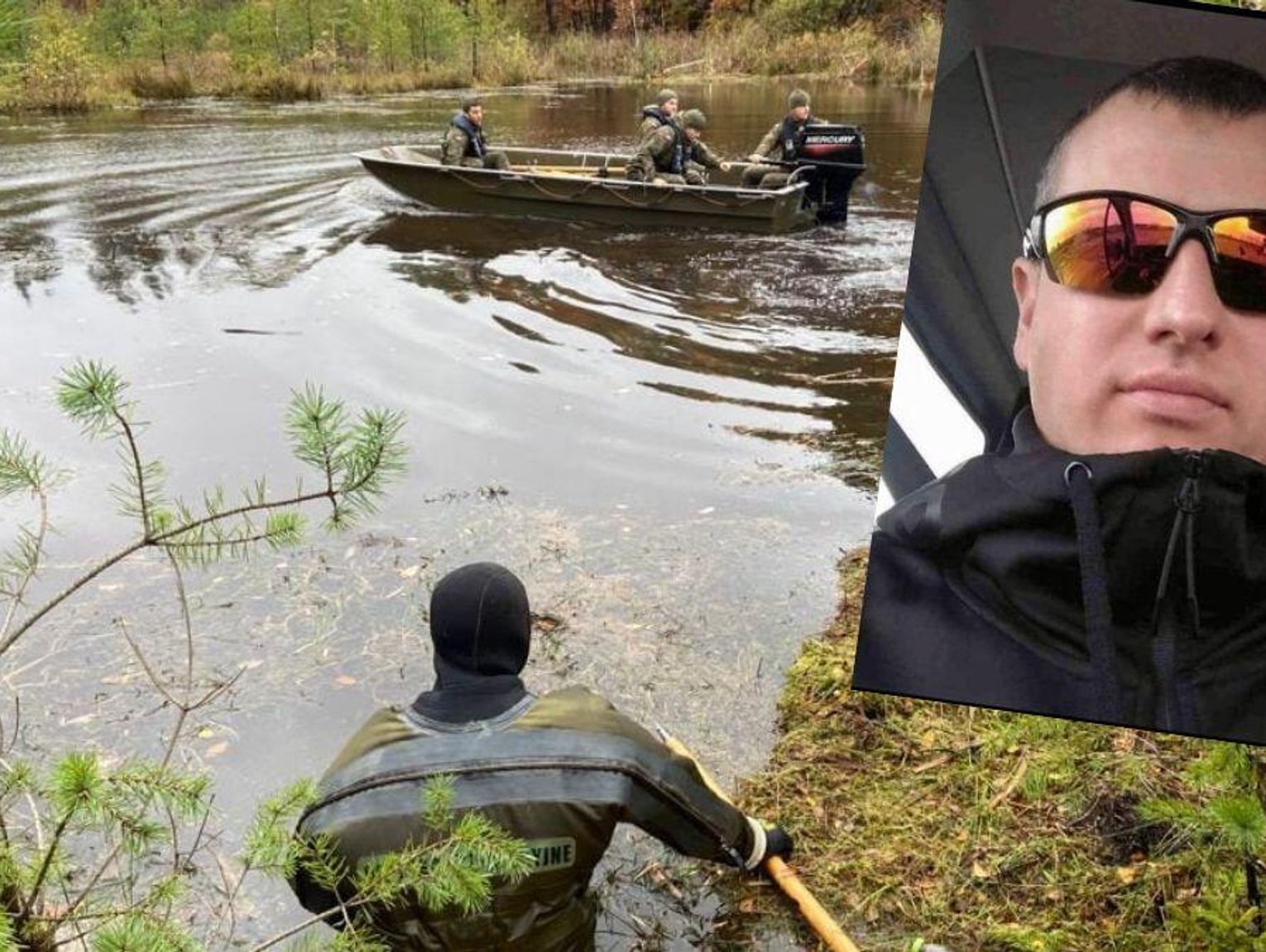
Trump Is A Rorschach Test For The Body Politic
Authored by Frank Miele via RealClearPolitics,
It is no secret that Donald Trump is a hot wire that either fires up the imagination of voters or fries the brain.

For those of us who experience Trump as a Promethean bringer of enlightening fire to the dark barren fields of modern politics, it is hard to fathom the reaction of those who are terrified of him. We just say they have Trump Derangement Syndrome.
But for those Trump haters, of course, it is the rest of us who are deranged. We are cult members or Christian nationalists or foot soldiers of the new Hitler.
You cannot imagine more diametrically opposed views of one man. On one hand, he is the embodiment of hope for those who want to restore America to the pinnacle of greatness. On the other, he is the manifestation of the worst fears of those who believe the country’s ascendant leftist ideology could still be thwarted at the ballot box.
Call Trump the random ink blot of a national Rorschach test that forces each of us to identify with the better angels or the worst devils of our nature. Or think of him as the equivalent of the optical illusion that forces the mind to choose whether it sees an old hag or a beautiful young woman. You can’t see both at once. Although both exist simultaneously in a drawing, you can only focus on one at a time.
As regards Trump, the media – serving as the surrogate eye of the public – can only see the equivalent of the old hag, and reports truthfully to the audience that it envisions Trump as a dark and dangerous presence who is a threat to democracy. But when the rest of us look at the same picture – or the same interview or speech – we can see Trump as the shining spirit of American greatness.
Case in point: The now infamous interview of Trump by Eric Cortellessa that recently appeared in Time magazine. The corporate media and Trump’s political opponents have seized on this interview to declare conclusively that Trump is a clear and present danger to the nation if he were elected to a second term. The headlines are downright hysterical:
- “Trump doesn’t rule out political violence if he loses, and other takeaways from his Time interview” (CNN)
- “Trump threatens to prosecute Bidens if he’s re-elected unless he gets immunity” (The Guardian)
- “Trump reveals terrifying plan for potential second term in Time magazine interview” (MSNBC)
- “Trump Hints Another January 6 Could Happen If He Loses the Election” (The New Republic)
- “Trump says it’s up to states whether to punish, monitor women for abortions” (Washington Post)
If those headlines were accurate, you could certainly make the case that all Americans should vote against Donald Trump, no matter how much they despise Joe Biden. And, truth be told, if you were to read just the interpretation of Trump’s words by Cortellessa in his Time magazine news story, you would be inclined to agree with that assessment. But what if Cortellessa is looking at Trump through a prism that automatically distorts his words to fit a confirmation bias that anything Trump says must be dangerous?
Fortunately, we don’t have to guess whether that happened. Time magazine very generously provided the evidence of the distortion by publishing not just Cortellessa’s very damaging news story, but also the raw transcript of his two interviews with Trump where we can see what the former president actually said.
Side by side, the story and the transcripts are raw material for a master class on media manipulation and how a reporter with a point of view can manufacture damaging fake news out of even the most benign responses of an overly trusting interviewee.
What is clear from the transcripts is that Cortellessa is an expert interviewer, someone who can make his subject comfortable and who stubbornly pursues answers to his questions until he gets the response he wants. But when you read the story he created out of the interview responses, you realize that Cortellessa’s real talent is magic: He can pull a dangerous autocrat out of Trump’s benign responses that show he intends to apply the power of the presidency in a thoughtful and well-reasoned manner to achieve the policy objectives he has outlined in his campaign.
A few examples will have to suffice in this format, but surely a conscientious journalism student could form an entire thesis around such a comparison. Early in his story, Cortellessa goes through a long laundry list of offenses that he categorizes as “the outlines of an imperial presidency.” The first thing you notice when reading the list is that it is in large measure the exact same list of policy goals that Trump recites proudly at every rally. It is therefore not only “the terrifying plan” that has MSNBC worried about a second term; it is also the platform that has convinced voters to favor Trump over Biden by 1.5 points in the RealClearPolitics Average of polls. In fact, despite Trump’s legal woes, as of last week he was ahead of or tied with Biden in nine of the last 10 polls.
The second and more important thing you notice about Cortellessa’s laundry list of Trump’s offending statements is that they are the least sympathetic interpretation by the author of well-reasoned positions taken by the former president in lengthy responses.
Consider Cortellessa’s dismissal of Trump’s rejection of FBI crime statistics:
“On the campaign trail, Trump uses crime as a cudgel, painting urban America as a savage hell-scape even though violent crime has declined in recent years, with homicides sinking 6% in 2022 and 13% in 2023, according to the FBI. When I point this out, Trump tells me he thinks the data, which is collected by state and local police departments, is rigged. ‘It’s a lie,’ he says.”
Well, Trump is right and Cortellessa is wrong. In an Oct. 27, 2023, report at Stateline.org, Amanda Hernández reported that “Across the country, law enforcement agencies’ inability — or refusal — to send their annual crime data to the FBI has resulted in a distorted picture of the United States’ crime trends, according to a new Stateline analysis of the FBI’s Uniform Crime Reporting program participation data. … Prior to 2021, 23% of U.S. law enforcement agencies on average did not report any crime data to the FBI. In 2020, 24% of agencies did not report, and in 2021, it surged to 40%.”
Call it a lie, or call it a damned statistic, but Trump is closer to the truth than the author.
On another topic – abortion – Cortellessa tells his readers that Trump is contemplating invasive monitoring of pregnancies.
“More than 20 states now have full or partial abortion bans,” Cortellessa declares, “and Trump says those policies should be left to the states to do what they want, including monitoring women’s pregnancies.”
Not quite. When you read the transcript, you discover that it was the reporter who brought up the concept of states “monitoring women’s pregnancies so they can know if they’ve gotten an abortion after the ban.” It is a nonsensical concept because there is nothing preventing a woman from traveling to a state where abortion is legal and receiving the procedure there.
But Trump never took the bait. When asked if he thought states should do it, he answered that they might do it, but he made it very clear that those decisions would be made at the state level and he would have no input on them. This is consistent with his policy on post-Roe legislation.
Cortellessa does give credit to Trump for saying that he would not consider challenging the 22nd Amendment’s limitation of two terms for each president. But he did everything he could in the interview to twist Trump into saying he would like to serve a third term. Although Trump said repeatedly that he would abide by the amendment’s restrictions, the reporter asked him three times if he would consider challenging the amendment.
“I don’t know anything about it,” an exasperated Trump says. “I mean, you’re telling me now that somebody’s looking to terminate. I wouldn’t be in favor of it. I wouldn’t be in favor of a challenge. Not for me. I wouldn’t be in favor of it at all. I intend to serve four years and do a great job.”
As for the threat of violence if Trump should lose the 2024 election, it is a gossamer-thin threat that exists mostly in the author’s subconscious.
“Trump does not dismiss the possibility of political violence around the election,” says Cortellessa. ‘If we don’t win, you know, it depends,’ he tells TIME. ‘It always depends on the fairness of the election.’”
But Cortellessa once again had to stretch Trump’s words to make it seem like he was contemplating violence if he lost the election. Here is the relevant passage from the first transcript.
Are you worried about political violence in connection with this November’s election?
Trump: No. I don’t think you’ll have political violence.
You don’t expect anything?
Trump: I think we’re gonna have a big victory. And I think there will be no violence.
That is as clear as you can get, but it didn’t fit the narrative that Cortellessa was intent on providing to his readers, so he returned to the topic in a follow-up interview:
[I]n our last conversation you said you weren’t worried about political violence in connection with the November election. You said, “I think we’re going to win and there won’t be violence.” What if you don’t win, sir?
Trump once again insisted that he would win, and suggested that because of heightened scrutiny he didn’t think the Democrats would be able to get away with any illegitimate schemes to steal the election in 2024. He then gave the quote that Cortellessa seized upon: “I think we’re going to win. And if we don’t win, you know, it depends. It always depends on the fairness of an election.”
Absolutely no reference to political violence, or any other kind of violence. Rather, Trump seems to be distinguishing between the possibility of a legitimate loss and being the victim of cheating. His reaction to losing would depend on whether the election was fair or not, but there is no evidence he is promoting violence. That is just a Democratic fantasy.
Ultimately, I recommend that everyone read the transcript of the interview and avoid Cortellessa’s interpretive fantasy. What you will discover is a former president who is fully in charge of his faculties, capable of arguing with nuance and gusto, and who has a vision for making America great again – the absolute opposite of the incumbent.
Indeed, if every voter were to read the transcript prior to voting, I have no doubt that Trump would win in a landslide. And there is evidence that Trump knew he had delivered a knockout with his wide-ranging responses. Toward the end of his first interview with Cortellessa, he tells the reporter, “I thought it was a good interview, actually,” and then he qualifies it based on his years of experience of having his words twisted by unscrupulous reporters:
“I mean, if it’s written fairly, it’s a good interview.”
More evidence that Trump is at the top of his game.
Tyler Durden
Tue, 05/07/2024 – 17:40














